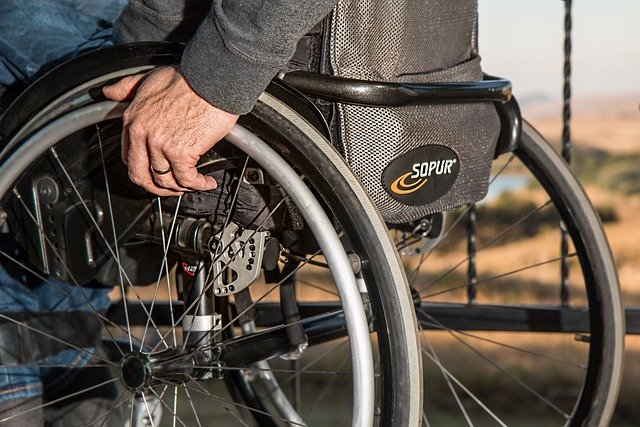Mobile Stair Lifts Without Installation: Safe, Simple, and Ready to Use
Mobility challenges on stairs don't have to limit your independence. Mobile stair lifts offer a revolutionary solution that requires no permanent installation, providing immediate access to multi-level homes and buildings. These portable devices combine safety, convenience, and flexibility, making them an ideal choice for temporary needs, rental properties, or situations where traditional stair lifts aren't feasible.

For individuals facing mobility challenges, navigating stairs can become a significant barrier to maintaining independence and accessing all areas of their home. Traditional stair lifts, while effective, require permanent installation and substantial investment. Mobile stair lifts present an innovative alternative that addresses these concerns while providing immediate mobility solutions.
What Is a Mobile Stair Lift?
A mobile stair lift is a portable mobility device designed to help individuals safely navigate stairs without requiring permanent installation. Unlike traditional stair lifts that are fixed to the staircase, these units are self-contained systems that can be positioned and used as needed. They typically feature a sturdy base, support rails, and a seat or platform that moves along a track system. The key advantage lies in their portability – they can be moved between different staircases or stored when not in use. Most mobile stair lifts are battery-operated, ensuring they remain functional even during power outages.
How Does a Mobile Stair Lift Work?
Mobile stair lifts operate using a combination of mechanical engineering and battery power to provide smooth, controlled movement up and down stairs. The device typically consists of a wheeled base that positions at the bottom of the staircase, with extending rails that create a temporary track system. Users sit on the attached seat or stand on the platform, secure themselves with safety straps, and use simple controls to initiate movement. The motor system engages to pull or lower the user along the rails at a controlled speed. Advanced models include sensors that detect obstacles and automatic braking systems for enhanced safety. The entire setup process usually takes just a few minutes, making these devices remarkably user-friendly.
What Are the Key Benefits of Mobile Stair Lifts?
Mobile stair lifts offer numerous advantages over traditional installed systems. Flexibility stands as the primary benefit – users can move the device between different staircases or take it when relocating. This portability makes them ideal for rental properties where permanent modifications aren’t permitted. Cost-effectiveness represents another significant advantage, as these units typically cost less than installed stair lifts and don’t require professional installation fees. They’re perfect for temporary situations, such as recovery from surgery or injury, where mobility assistance is needed for a limited period. Additionally, mobile stair lifts don’t require structural modifications to the home, preserving the original architecture and avoiding potential property value concerns.
Who Should Consider Using a Mobile Stair Lift?
Several groups of people can particularly benefit from mobile stair lifts. Individuals recovering from surgery, injury, or illness who need temporary mobility assistance find these devices invaluable during their rehabilitation period. Elderly people experiencing declining mobility but who aren’t ready for permanent home modifications often prefer the flexibility these units provide. Renters facing mobility challenges appreciate that they don’t need landlord permission for installation. Caregivers supporting family members with mobility issues value the ability to provide immediate assistance without lengthy installation processes. People with progressive conditions may find mobile units allow them to test mobility solutions before committing to permanent installations.
What Safety Features Should You Look For?
When selecting a mobile stair lift, several safety features deserve careful consideration. Emergency stop buttons should be easily accessible and clearly marked, allowing immediate cessation of movement if needed. Weight capacity ratings must exceed the user’s weight by a comfortable margin – most quality units support 250-300 pounds. Battery backup systems ensure continued operation during power outages, while low battery indicators provide advance warning. Secure harness systems or safety belts prevent falls during transport. Anti-tip mechanisms and stable base designs minimize the risk of the device shifting during use. Smooth start and stop functions reduce jarring movements that could cause discomfort or injury.
| Product Type | Provider | Cost Estimation |
|---|---|---|
| Basic Mobile Stair Lift | Acorn Stairlifts | £2,500 - £3,500 |
| Premium Portable Unit | Stannah | £3,000 - £4,200 |
| Heavy-Duty Mobile Lift | Handicare | £3,500 - £4,800 |
| Rental Option (Monthly) | Local Mobility Suppliers | £150 - £300 |
Prices, rates, or cost estimates mentioned in this article are based on the latest available information but may change over time. Independent research is advised before making financial decisions.
Mobile stair lifts represent a practical solution for individuals seeking immediate mobility assistance without the commitment and expense of permanent installation. Their combination of safety features, portability, and cost-effectiveness makes them suitable for various situations, from temporary recovery needs to long-term mobility support. When choosing a mobile stair lift, prioritize safety features, weight capacity, and battery life to ensure the device meets your specific requirements. These innovative mobility aids continue to evolve, offering increasingly sophisticated features while maintaining the core benefit of providing safe, independent access to multi-level spaces.




